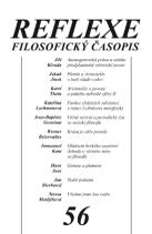The Nature of the Soul and the "Nature of the Whole" in Plato's Phaedrus
This article tries to elucidate Socrates’ suggestion that the nature of the soul cannot be properly known without the „nature of the whole“ (270c1–2). According to the author’s interpretation, the word „whole“ should design the soul together with the body, and not the whole of the universe. This reading is based not only on the immediate context of the given phrase, but equally on the fact that the Phaedrus contains two different inquiries into the physis of the soul, both of them being closely tied to the question of the whole and its parts. In Socrates’palinody, the soul as indivisible and constantly moving guarantees the perpetuation of the universe as an articulated structure. The soul’s nature consists then in its ability to move the bodies and to enter them, that is, to make them individually alive. It is not possible to account for the soul’s actions and passions without taking into account the body or the image of the body. The ambiguity of Socrates’s speech, which offers either the image of the composite soul or the composite image of the soul, determines to some degree the second thematization of the soul’s nature, which belongs to the inquiry concerning rhetoric. The question of a direct causal relation between some kinds of speeches and some kinds of souls is posed on the ground of the soul imagined as divided into parts according to the parts of the body. The „whole“ that neccesarily intervenes in the elucidation of the nature of the soul is the whole of the composite soul, which means at the same time of the soul as tied to an individual body and not the body of the universe.
Backlinks: Reflexe 19
